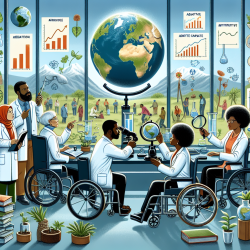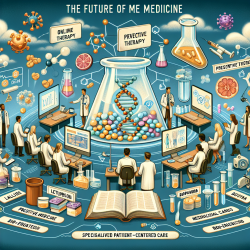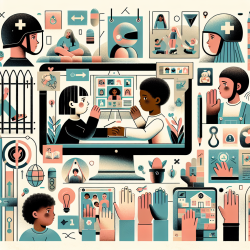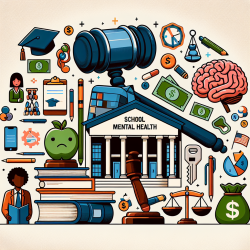Introduction
As Special Education Directors, our role extends beyond ensuring compliance and managing staffing shortages. We are leaders in shaping the future of education and health, especially in the face of global challenges like climate change. The research article "Climate Change and Human Health in Africa in Relation to Opportunities to Strengthen Mitigating Potential and Adaptive Capacity: Strategies to Inform an African 'Brains Trust'" offers valuable insights that can be leveraged to enhance our practice and support our communities.
Understanding the Research
The research highlights the profound impacts of climate change on human health in Africa, emphasizing the need for robust strategies to mitigate these effects. It outlines how rising temperatures, extreme weather events, and sea-level rise disproportionately affect Africa, posing significant challenges to health systems and vulnerable populations.
Implementing Research Outcomes
As practitioners, we can implement the research outcomes in the following ways:
- Enhance Awareness: Educate our communities about the health impacts of climate change and promote sustainable practices.
- Advocate for Policy Change: Collaborate with policymakers to integrate climate action into educational and health policies.
- Support Vulnerable Populations: Develop targeted programs to support those most affected by climate change, such as children and individuals with disabilities.
- Foster Resilience: Encourage adaptive capacity by integrating climate education into school curriculums and community programs.
Encouraging Further Research
While the research provides a solid foundation, it also highlights areas needing further exploration. As leaders, we should encourage ongoing research in the following areas:
- Localized Studies: Conduct region-specific studies to understand unique climate impacts and develop tailored interventions.
- Mental Health Impacts: Explore the psychological effects of climate change on students and staff to provide adequate support.
- Technological Innovations: Investigate how technology can aid in climate adaptation and mitigation within educational settings.
Conclusion
By implementing the outcomes of this research and fostering a culture of continuous inquiry, we can enhance our ability to lead effectively in the face of climate challenges. Together, we can build resilient communities and ensure a sustainable future for all.
To read the original research paper, please follow this link: Climate Change and Human Health in Africa in Relation to Opportunities to Strengthen Mitigating Potential and Adaptive Capacity: Strategies to Inform an African “Brains Trust”.










